Abstract
Soybean plants growing at day/night temperatures of 30/18, 26/18, and 22/18 C were subjected to a single drying and recovery cycle during an 18- to 19-day period in the early to midpod development stage. Leaf total electrochemical water potential was reduced to about −24 bars during the 4-day drying cycle at all temperatures, but recovered to control levels upon rewatering. The changes in dry matter accumulation in whole plants and plant parts, specific activity of nodules as measured by acetylene reduction, and levels of adenosine phosphates in nodules were measured periodically during stress and recovery.
Vegetative and reproductive growth were about equally suppressed by the leaf moisture stress. Both rate of appearance and number of pods were reduced. However, a similar average weight per pod for both stressed and control plants at the conclusion of the recovery period suggests that individual pod development is not irreversibly affected by a single stress cycle and that yield potential is restricted by a decrease in number of pods or seed. Dry matter accumulation in plants and pods was unaffected by temperature.
Specific nodule activity and energy charge of nodules declined concurrently with leaf moisture potential. Recovery of specific nodule activity following rewatering lagged behind recovery of leaf moisture potential, but energy charge of nodules recovered as rapidly as leaf moisture potential upon rewatering. Thus, the delayed recovery of specific nodule activity does not appear to be related to recovery of energy charge of the nodules.
Full text
PDF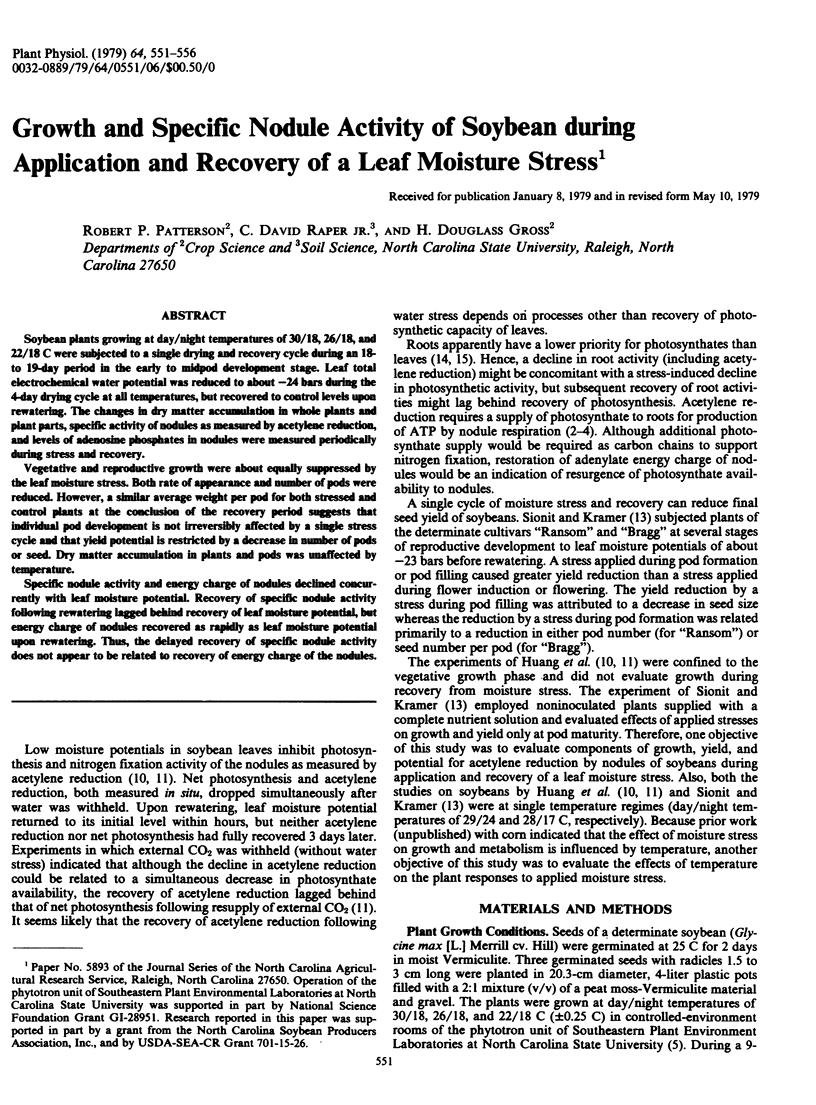
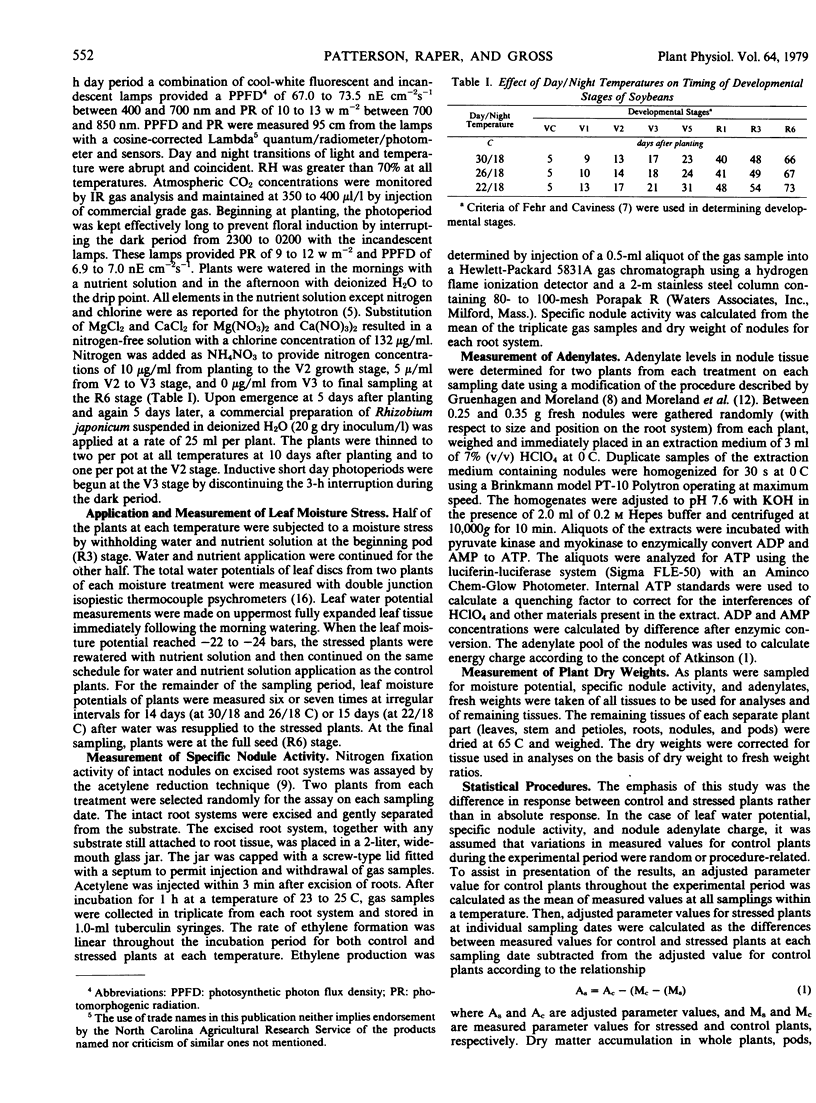
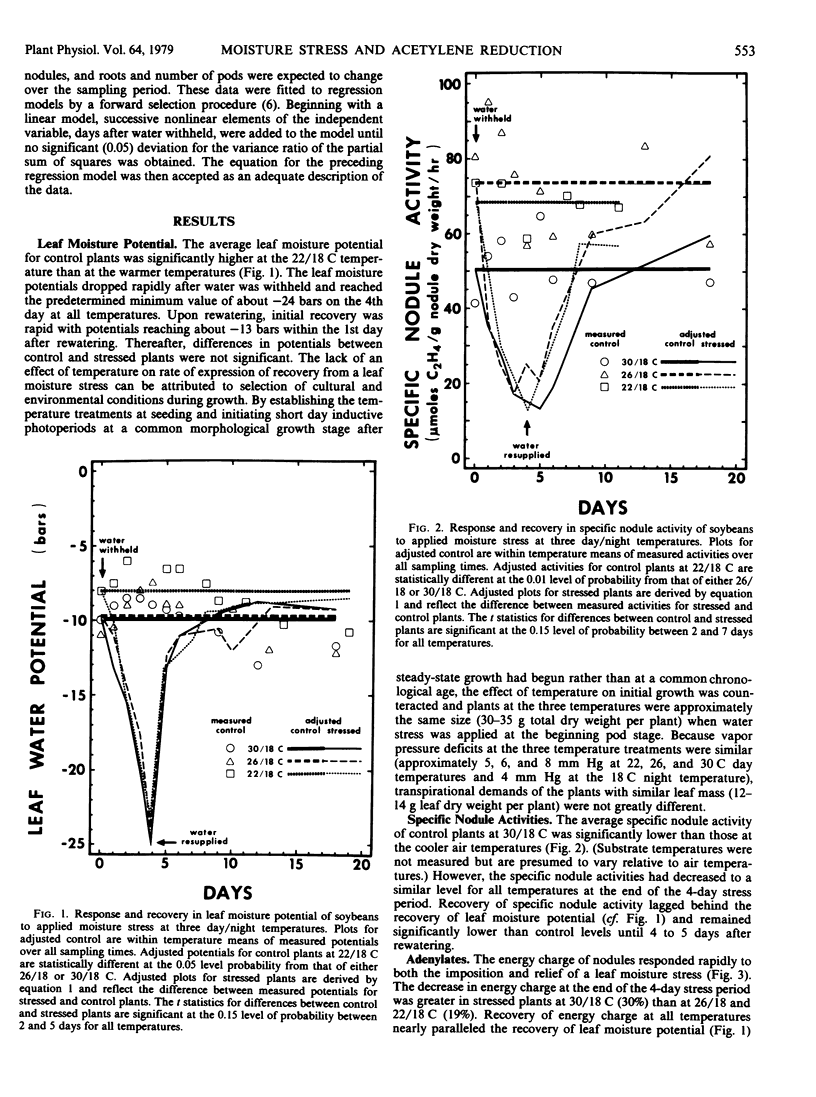
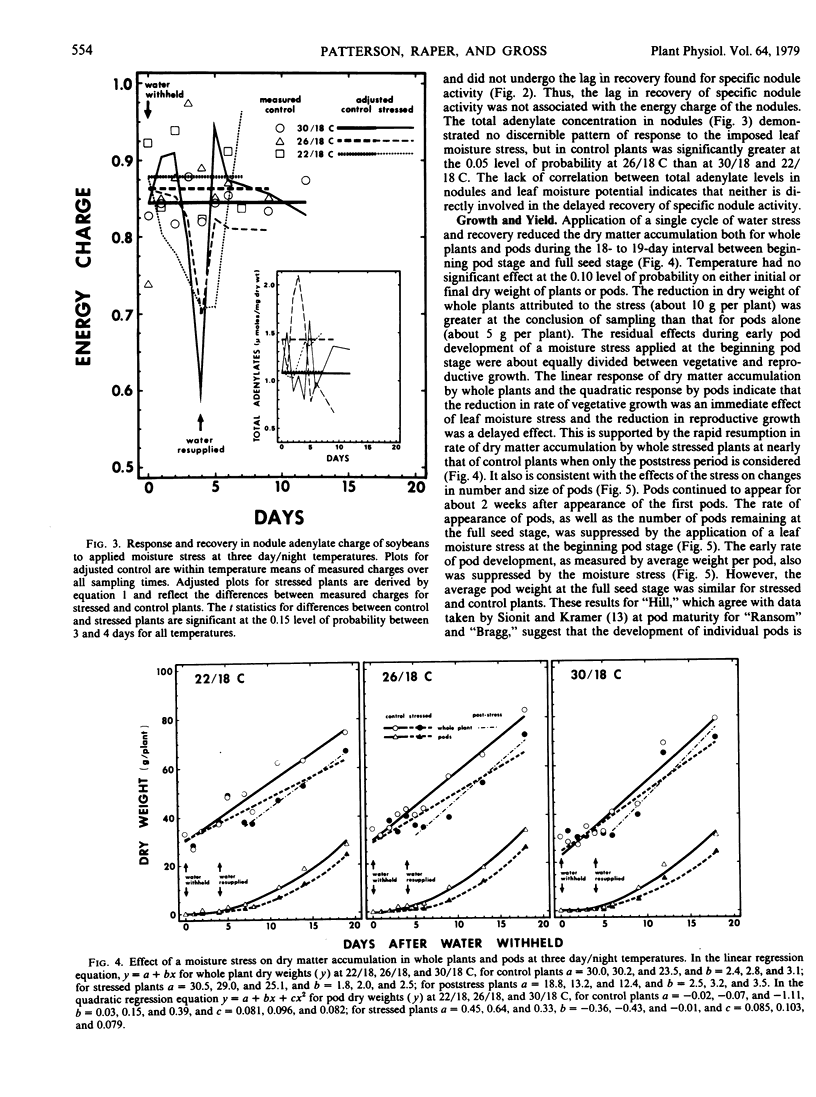

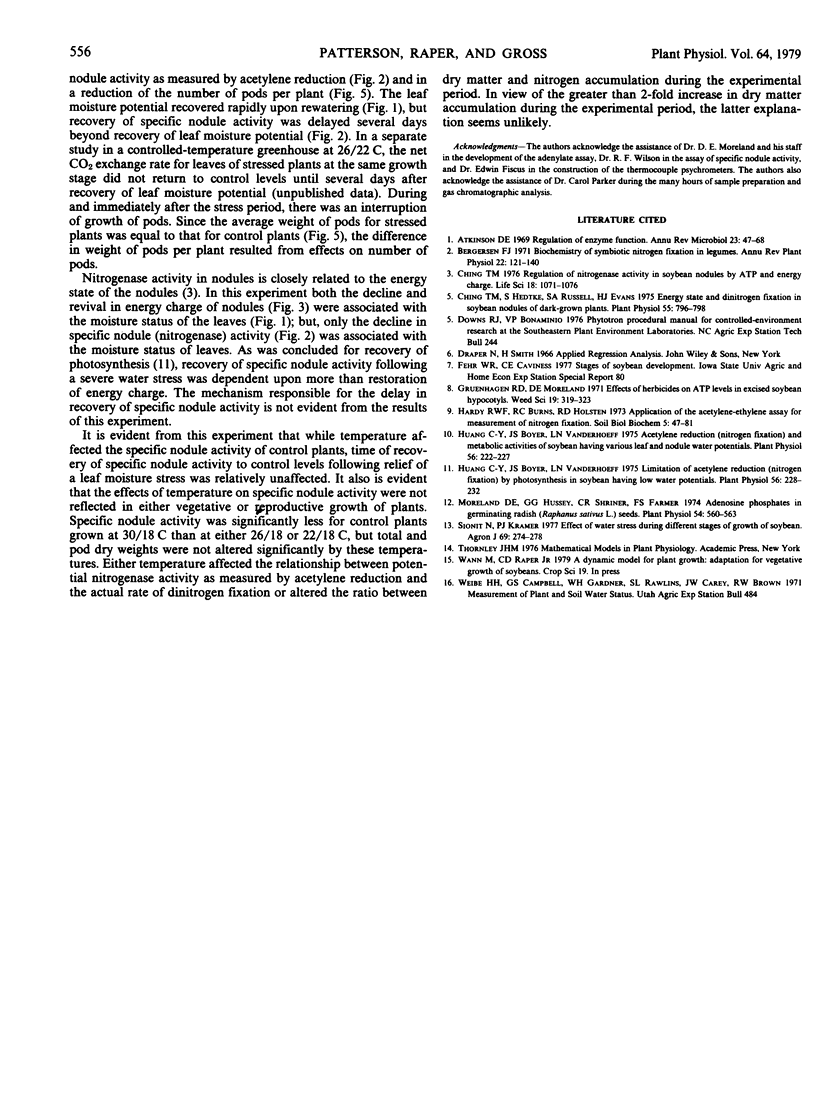
Selected References
These references are in PubMed. This may not be the complete list of references from this article.
- Atkinson D. E. Regulation of enzyme function. Annu Rev Microbiol. 1969;23:47–68. doi: 10.1146/annurev.mi.23.100169.000403. [DOI] [PubMed] [Google Scholar]
- Ching T. M., Hedtke S., Russell S. A., Evans H. J. Energy State and Dinitrogen Fixation in Soybean Nodules of Dark-grown Plants. Plant Physiol. 1975 Apr;55(4):796–798. doi: 10.1104/pp.55.4.796. [DOI] [PMC free article] [PubMed] [Google Scholar]
- Ching T. M. Regulation of nitrogenase activity in soybean nodules by ATP and energy charge. Life Sci. 1976 May 15;18(10):1071–1076. doi: 10.1016/0024-3205(76)90140-5. [DOI] [PubMed] [Google Scholar]
- Huang C. Y., Boyer J. S., Vanderhoef L. N. Acetylene reduction (nitrogen fixation) and metabolic activities of soybean having various leaf and nodule water potentials. Plant Physiol. 1975 Aug;56(2):222–227. doi: 10.1104/pp.56.2.222. [DOI] [PMC free article] [PubMed] [Google Scholar]
- Huang C. Y., Boyer J. S., Vanderhoef L. N. Limitation of acetylene reduction (nitrogen fixation) by photosynthesis in soybean having low water potentials. Plant Physiol. 1975 Aug;56(2):228–232. doi: 10.1104/pp.56.2.228. [DOI] [PMC free article] [PubMed] [Google Scholar]
- Moreland D. E., Hussey G. G., Shriner C. R., Farmer F. S. Adenosine Phosphates in Germinating Radish (Raphanus sativus L.) Seeds. Plant Physiol. 1974 Oct;54(4):560–563. doi: 10.1104/pp.54.4.560. [DOI] [PMC free article] [PubMed] [Google Scholar]


